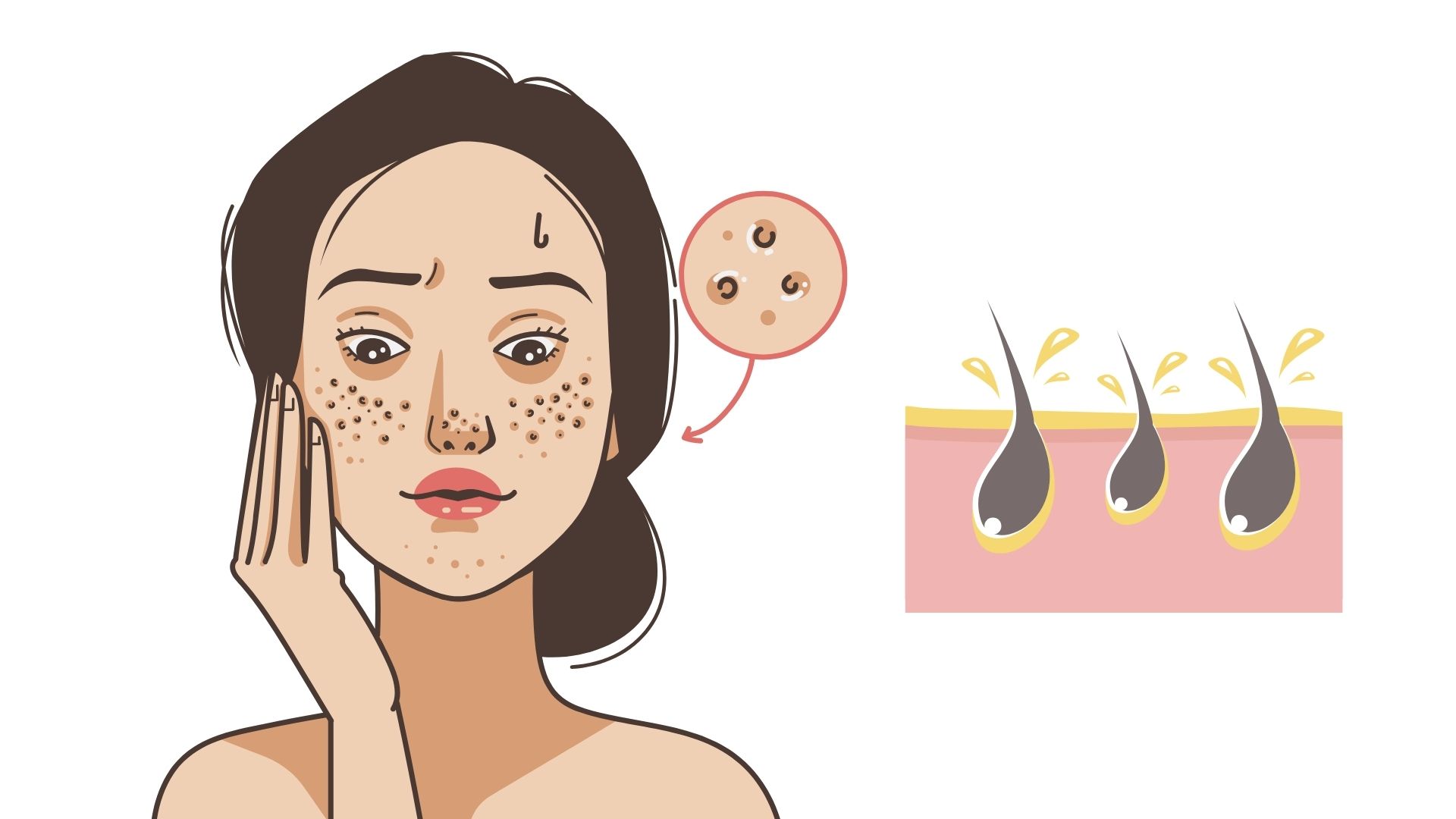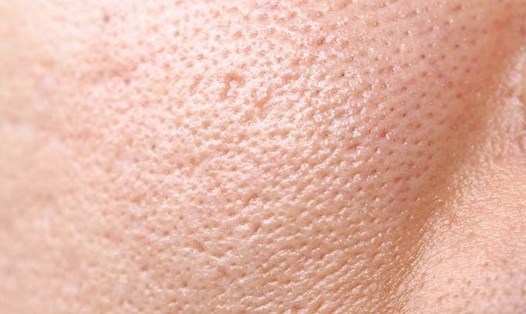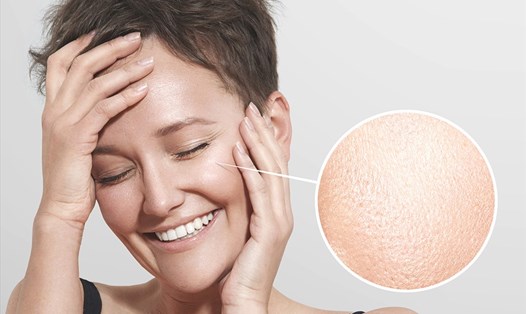
Oily skin - the leading culprit
Oily skin often produces large amounts of sebum, making it easy for dirt and dead skin to accumulate in pores, leading to large and easy-to-see pores. Regular skin cleansing with a mild cleanser, combined with exfoliants such as glycolic acid, is an important step to control oil and improve this condition.
Hormonal and gender-based effects
Large fur holes can also be related to biological factors. Men often have larger pores due to thicker skin structure and stronger oil glands.
In women, hormonal changes during puberty, pregnancy or before menstruation can make pores more noticeable. A healthy diet and limiting high-fat foods will help control this condition.
Aging causes skin to lose elasticity
Age is one of the factors that make pores increasingly noticeable. As the skin gradually loses collagen and elastin over time, elasticity declines, causing pores to expand. Early anti-aging skin care, especially from the age of 25, will help improve skin texture and maintain smoothness.
Harmful effects of sunlight
Long-term exposure to UV rays can disrupt the collagen structure, weakening the skin's firmness and making pores look larger. Using a broad-spectrum sunscreen every day is an essential protection measure, not only helping to prevent aging but also limiting pores dilation.
Genetics - an uncontrollable factor
If you have thick, oily skin due to genetics, large pores can be a natural feature. Although this cannot be changed, using appropriate care products such as serum tightens pores and oil- control lining can still improve the skin's appearance somewhat.







